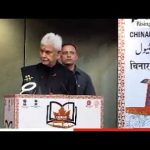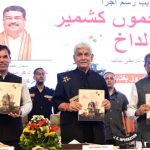One must go into Pakistan’s past to understand its feudal mentality, which was founded as a religious nation. In fact, the Zamindars and Nawabs of the then-undivided Bengal founded the All-India Muslim League in Dhaka on December 30, 1906, with the intention of defending their rights and obtaining advantages and concessions from the British.
The objectives of the league were:
- To instill in Muslims a sense of allegiance to the British government,
- To protect Muslims’ political rights and communicate them to the government,
- To stop Muslims from being more prejudiced against other Indian groups.
To keep their hold over the Indian Peninsula, our colonial masters encouraged and pampered these feudal lords to carry out their divide and conquer strategy. The Muslim League’s elites in Lahore approved a resolution on March 23, 1940, calling for the creation of a nation exclusively for the Muslims of the Indian subcontinent.
Consequently, this nation was established solely to safeguard the interests of a few dominant classes of society, who often exploit and mislead the general populace to forward their own agendas. Poor Pakistanis have always been victims, as they have been kept under the fear and bogey of Hindu India to further its nefarious designs.
Economist Ejaz’s views that feudalism is a deeply ingrained and pervasive issue that continues to hinder the Pakistan’s development. He believes that the influence of the feudal class prevents the creation of a modern state and that their resistance to change hinders progress. Pakistan exemplifies both modernity and premodernity since it is a nuclear power with a feudal social structure. Despite technological breakthroughs in the twenty-first century, Pakistan remains a rogue state that adheres to a mediaeval feudal structure.
Even though India easily defeated Pakistan in a four-day war, it is shocking that the civilian government promoted Pakistan Army Chief of Army Staff Gen. Asim Munir to the five-star rank of Field Marshal, making him only the second person in Pakistani history to do so after Field Marshal Mohammad Ayub Khan. His term, which was supposed to finish in 2025, has been extended until 2027 as a result of a significant piece of legislation enacted by Pakistan’s National Assembly in November of 2024. This new law extended the terms of service of for the chiefs of the Army, Navy, and Air Force from three to five years.
The situation’s irony and absurdity are obvious. While such awards are often bestowed for military victories, Munir gained this recognition following a defeat. The adage ‘victory has many fathers, but defeat is an orphan’ seems upended in this case. However, in Pakistan’s complex civil-military dynamic, optics frequently mask deeper political realities, and, to Munir’s credit, he managed to persuade his compatriots that he emerged victorious in the conflict with India, despite numerous video clips (many of which were shot by Pakistanis) proving the contrary.
Munir’s elevation, which was formally given by the civilian administration under Prime Minister Shehbaz Sharif, highlights the military’s entrenched role in Pakistan’s political scene. Prime Minister Sharif is well aware of the dangers of glorifying a military leader. General Musharraf, who started the disastrous Kargil war and then gained power through a coup, serves as a cautionary tale.
By conferring the coveted five-star rank on him, Sharif may be aiming to dampen Munir’s political ambitions. He also had to thank him for putting an end to the clamour for Imran Khan’s release. The truth is that Munir is more than simply the military leader; he is Pakistan’s de facto dictator. His role in deposing previous Prime Minister Imran Khan and replacing him with Sharif is widely known. Sharif’s premiership is widely regarded as the result of Munir’s influence, and the government is reliant on the general’s continuous support.
Ayub’s title occurred after he had ceded direct command, and his ascension to the rank was self-proclaimed, but Munir’s promotion, while granted by a civilian administration, occurs while he is still in charge of the military machinery, making him a field marshal with full command duties. In fact, the promotion has little to do with merit, as he has shown none during the fight with India. Rank may provide reputation, but it cannot protect from the repercussions of error. With Pakistan confronting economic instability, political turmoil, and regional isolation, the military’s hold over the country looks to be stronger than ever.
In the 1990s, when the founder of modern Singapore, Prime Minister visited Pakistan. On his way out, he was asked about his opinion about Pakistan. He replied: “I have never seen a country so determined to commit suicide.” Pakistan continues to take pleasure in its questionable position. It’s probable that no other country is more willing to celebrate its own flaws and decline in order to fool its own inhabitants. Gen. Asim Munir’s self-promotion exemplifies the nation’s destructive policies. This conduct simply confirms Pakistan’s feudal attitude.
(Author is Deputy Director of Boilers (Retd). Feedback: [email protected])










